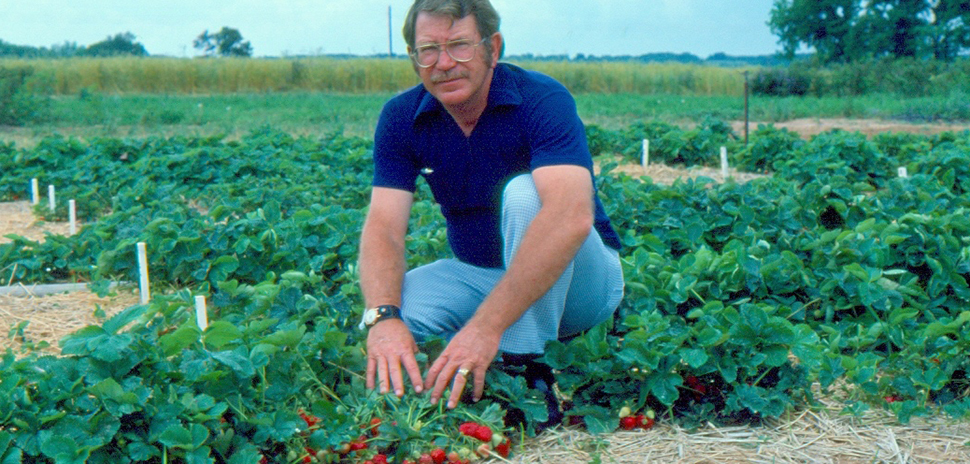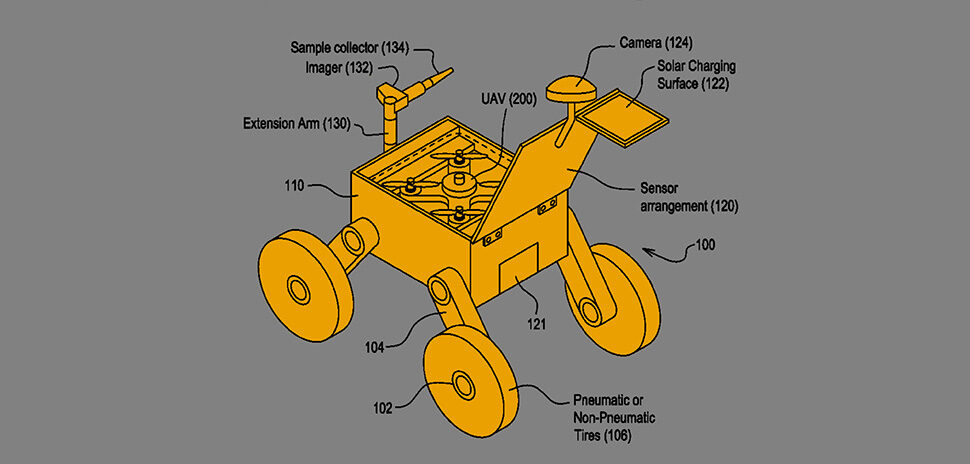James Norman Moore died earlier this year in Arlington without seeing the fruits of his patent application for a namesake blueberry that’s unique in all the world.
Plant patents are uncommon, comprising a little over 600 of the patents issued in 2016 to U.S. inventors or assignees from the top 250 metropolitan areas, according to data from Joe Chiarella of Patentidx.com.
In Dallas-Fort Worth, one plant patent was issued so far this year — four were issued in 2016, two in 2013, and one in 2007 — according to Patentidx.
Moore died at age 85 on Jan. 22, and he’s listed on Patent No. PP028502 as the inventor of a “Blueberry plant named Norman.” The patent application was filed on Nov. 25, 2015, and it took 685 days from application to issuance of the patent.
A plant can be patented two ways, as a plant patent such as Norman’s, or as a utility patent, the way 95 percent of all patents are done.
A plant can be patented two ways, as a plant patent such as Norman’s, or as a utility patent, the way some 90 percent of all patents are done. Utility patents offer broader protections than plant patents, which do not include essentially derived varieties or EDVs.
Dallas patent attorney David Carstens of the law firm Carstens & Cahoon LLP agreed that plant patents are not common, and different from utility patents.
“They are only available for newly invented strains of asexually reproducing plants (ones that don’t use seeds or spores),” said Carstens, who noted that in 2015, only 1,140 plant patent applications were filed nationwide compared to 589,410 utility patents.
The patent for Norman is assigned to the Board of Trustees of the University of Arkansas, Little Rock and The United States of America, as represented by the Secretary of Agriculture.
The patent’s summary speaks to Norman’s place in the blueberry world: “Description and specifications of a new and distinct blueberry cultivar named Norman, which originated from seed produced by a hand-pollinated cross of USDA blueberry selection G-566 (non-patented, unreleased genotype) Legacy (non-patented, released genotype) is provided. This new blueberry cultivar can be distinguished by high fruit quality including excellent picking scar, color, firmness, and flavor along with excellent plant health and vigor.”
“Dr. Moore was a world leader in fruit breeding including blueberries, and had a stellar career at the University of Arkansas.”
John Clark
Moore spent a lifetime of innovation in the agriculture arena.
He developed Norman along with a host of other plant cultivars while a professor at the University of Arkansas at Fayetteville, where he founded the System Division of Agriculture Fruit Breeding Program in 1964. Moore began cross-breeding blueberries in the 1970s.
“Dr. Moore was a world leader in fruit breeding including blueberries, and had a stellar career at the University of Arkansas,” John R. Clark, distinguished professor of horticulture at the university, and Moore’s successor as director of the division’s fruit breeding program, told Dallas Innovates.

James Moore works in a strawberry field in 1979 at the University of Arkansas. [Photo courtesy of University of Arkansas]
NORMAN IS ONE OF MOORE’S MANY PATENTS
Clark said that Moore held many more patents than just Norman, which was officially released for cultivation in 2015. Moore also released blueberry cultivars Ozarkblue in 1996 and Summit, in 1999, for example.
Norman is a southern high bush variety with semi-upright plants and good vigor, Clark said. The berries average 1.7 to just 2 grams in weight and are very suitable for commercial fruit shipping operations as well as local fresh market locations.
The university said that more than 50 varieties of fruit were released thanks to Moore’s work. Among the most important were the Cardinal strawberry, Navaho and Shawnee blackberries, Reliance and Mars grapes, Bonfire peach, and Ozarkblue blueberry.
Which leaves us with the question of why the university gave the blueberry its name.
“Before leaving home for college, Dr. Moore was widely known as ‘Norman,’” Clark said when the berry was released in 2015. “In college and ever after, he became known as ‘James’ or ‘Jim,’ but he told me he always liked ‘Norman.’”
While he spent most of his life in Arkansas, Moore and his wife, Jan, moved to Arlington a few years ago to be near their children, Pam Millican and David Moore, Clark said.
More reading
Dallas Invents: 73 Patents Granted for Week of Oct. 10
Dallas Invents: 68 Patents Granted for Week of Oct. 3
![]()
Get on the list.
Sign up to keep your eye on what’s new and next in Dallas-Fort Worth, every day.
And, you’ll be the first to get the digital edition of our new Dallas Innovates magazine:
The annual edition publishes in January.



























